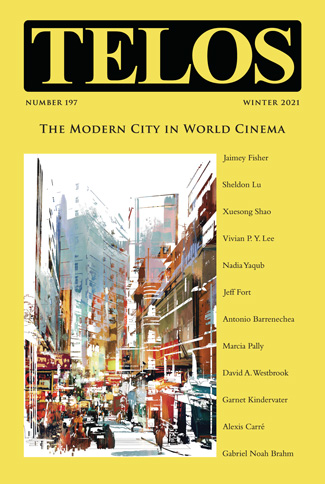In today’s episode of the Telos Press Podcast, David Pan talks with Vivian P.Y. Lee about her article “The City in Flux: Toward an Urban Topology of Hong Kong Cinema,” from Telos 197 (Winter 2021). An excerpt of the article appears here. In their conversation they discuss Hong Kong’s urban space and its cinematic reinventions; the relationship between cinematic space and disappearance; the cinematic lineage of Patrick Lung and John Woo, and their different depictions of modern urban institutions and individual heroes; the use of nostalgia in film to reveal darker realities of the dystopian present; how post-Umbrella Movement films have created new forms of production and distribution; the present and future of Hong Kong cinema; and the ways in which filmmakers have turned the city of Hong Kong into a protagonist. If your university has an online subscription to Telos, you can read the full article at the Telos Online website. For non-subscribers, learn how your university can begin a subscription to Telos at our library recommendation page. Print copies of Telos 197 are available for purchase in our online store.
|
Telos 197 (Winter 2021): The Modern City in World Cinema, edited by Jaimey Fisher and Sheldon Lu, is now available for purchase in our store. Individual subscriptions to Telos are also available in both print and online formats.
|
||||
|
Telos Press Publishing · PO Box 811 · Candor, NY 13743 · Phone: 212-228-6479 Privacy Policy · Data Protection Copyright © 2025 Telos Press Publishing · All Rights Reserved |
||||



